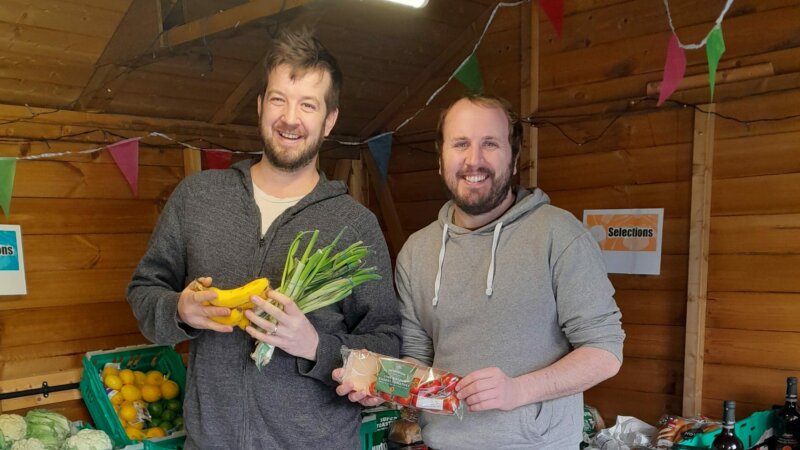Asylum: Seeking refuge in South Yorkshire
According to the UN Refugee Agency (UNHCR), over half a million people have crossed the Mediterranean and Aegean seas this year seeking refuge in other countries, primarily from Syria, Afghanistan, Iraq and Eritrea. Almost 3,000 people have drowned or gone missing in the process. Lebanon, Jordan and Turkey, neighbours to Syria, have seen the arrival of 3.6 million Syrian refugees between them.
Despite David Cameron acknowledging that the UK has a "moral responsibility" to resettle refugees living in camps bordering Syria, the Home Office has only committed to accepting 20,000 Syrian refugees into the UK over the next five years. While this is certainly more 'moral' than the approaches of countries like the Czech Republic, which has reportedly been numbering refugees with indelible ink, and Hungary, where all asylum requests made at the Serbian border are now automatically rejected and tear gas and water cannons have been employed on refugees, it's hardly overstretching ourselves. Any constructive approach to the concentration of refugees in Calais has also remained conspicuously absent from the Government's response.
This situation has rightly been described by Jim Steinke, Chief Executive of the Northern Refugee Centre (NRC), as the worst refugee crisis since the Second World War. NRC is the closest thing we have to a 'one-stop shop' for refugees and asylum seekers in Sheffield, and has existed in various incarnations for over 30 years. Located just off Castlegate, the independent charity has more recently moved towards offering a regional service, with additional bases in Leeds, Bradford, Wakefield, Huddersfield, Doncaster and Hull. The Centre houses a number of services geared towards helping refugees across a wide range of areas, including community integration, befriending and mentoring, housing, employment, access to healthcare, legal advice and asylum claims.
NRC recently launched an urgent campaign to raise £100,000 to cover some of its basic core costs. When I meet Jim at the Centre to talk about the campaign, he poses me a question I am unable to answer: "How do you make funding unrestricted reserves for an organisation sexy?" People are generally much more motivated to donate to a cause with direct, immediate impact, he notes, often focussed on the level of the individual in need. While this is needed, and very gratefully received, it can neglect the bigger picture. And while it's certainly not sexy, the NRC campaign tag line, "Never Have We Been More Needed", will ring true for many people keeping up with the European crisis unravelling before our eyes on a daily basis.
"This is about keeping the organisation going, and it's very much about enabling reserves, not least cashflow, so we actually can pay bills at the end of the month," Jim tells me. He is cautiously optimistic about the current high visibility of the plight of refugees, and is enthused by recent food and clothing collections across Sheffield, but remains understandably concerned about the future. "It's great at the moment, but where will we be in six months' time, nine months', a year's time? [...] There needs to be a recognition by the government, by local authorities, and by those national organisations about the need to invest in the local and regional voluntary sector for the longer term approach."
Also involved in the discussion is Gina Clayton, trustee of ASSIST and South Yorkshire Refugee Law and Justice (SYRLJ), an immigration adviser and researcher. ASSIST is the only charity in Sheffield centred on supporting destitute asylum seekers - those whose asylum claims have been rejected by the Home Office - while SYRLJ provides advice on asylum claims to those who cannot get legal representation, the latter currently based in the NRC building. For Gina, the issue is with government policy - One Stop asylum support services were cut by an outrageous and untenable 60% in 2011 - but also with the attitudes of society at large.
"The society we're in is changing, and needs to change, and will go on changing anyway, whether we like it or not. We need to embrace change. We need a social investment in saying, 'We want a welcoming society, we want a diverse society, and we are prepared to invest in what it takes to make that happen.' That's a longer term process, which requires longer term commitment, also recognising it’s not an easy thing and challenges us all," Gina says.
The asylum process is very much a legal one, which has the effect not only of dehumanising many asylum seekers, but also leaving it wide open to problems and technicalities which can permanently invalidate the most legitimate of claims, often due to bad asylum advice given by well-meaning friends and relatives. For a variety of reasons, some of which are even outside of the control of the Home Office, those who are refused asylum are often not deported, but instead are left stranded in the UK. "That means 100% destitution - nowhere to live, no money to live on, no capacity to earn, no ability to earn, not allowed to work, not allowed to claim benefits. Nothing," Gina tells me.
Perhaps because of the more overtly desperate situation of asylum seekers who are destitute, ASSIST gets around half of its funding through donations from members of the public, significantly more than NRC, which is funded in the main by grants and contract procurement. This has helped ASSIST to give food grants of £20 to over 80 destitute people each week, "the highest it's been for several years", as well as fielding over 1,600 individual enquiries at its helpdesk in the last financial year. NRC will work with as many as 2,500 people across a year, on top of another 2,500 through its other regional bases.
The Centre is currently approaching 11 local authorities in the region about the Syrian resettlement programme with the hope of forming a partner consortium. The Government giving this work to a national organisation would involve significant 'top slicing' of funding, Jim points out, meaning that less of the money would find its way into the programme itself, and any national organisation would surely end up working with NRC in South Yorkshire anyway. There is also significant cause for concern around how the 20,000 Syrian refugees currently set to arrive by 2020 will be supported in the medium and long term, with regards to ongoing needs around employment, housing and integration.
Asylum seekers, wherever they are along the legal process, need access to a diverse range of support services covering all areas of life, and these two organisations provide much of it for those who find themselves in Sheffield. Though Jim hesitates to use the word, 'holistic' perfectly describes the work that NRC does with refugees in the city. The importance of the Centre's 'one-stop shop' approach cannot be overstated, given how isolated and inaccessible its client base can be, and if it were to close, both SYRLJ and local campaigners working under the banner of South Yorkshire Migration and Asylum Action Group (SYMAAG) would lose a home.
The good news is that NRC has already reached 50% of its £100,000 target since it launched its fundraising appeal, but much of this has come from regular supporters. The appeal will run at least until the end of 2015, and donations can be taken via the NRC website or by cheque. If there's something else you can do for either NRC or ASSIST, get in touch with them.
nrcentre.org.uk
assistsheffield.org.uk
facebook.com/syrlj
symaag.org.uk
Photo: Syrian refugees in Budapest, Sept 2015 - Photo by Mstyslav Chernov )







